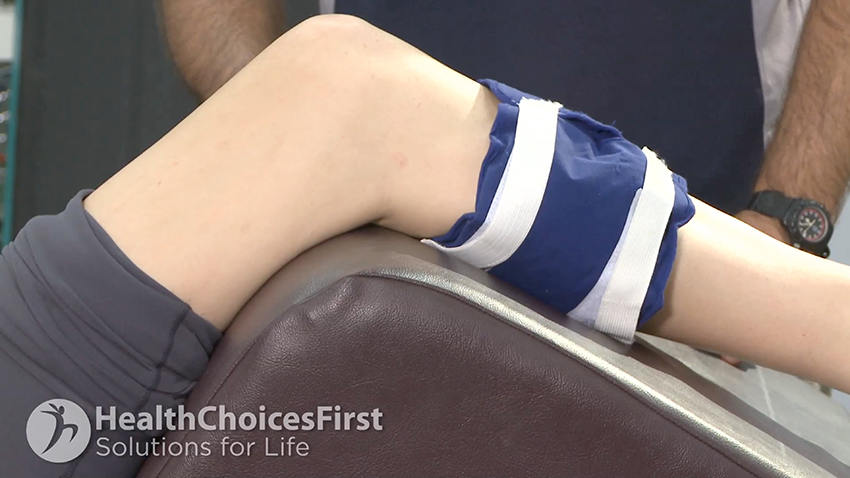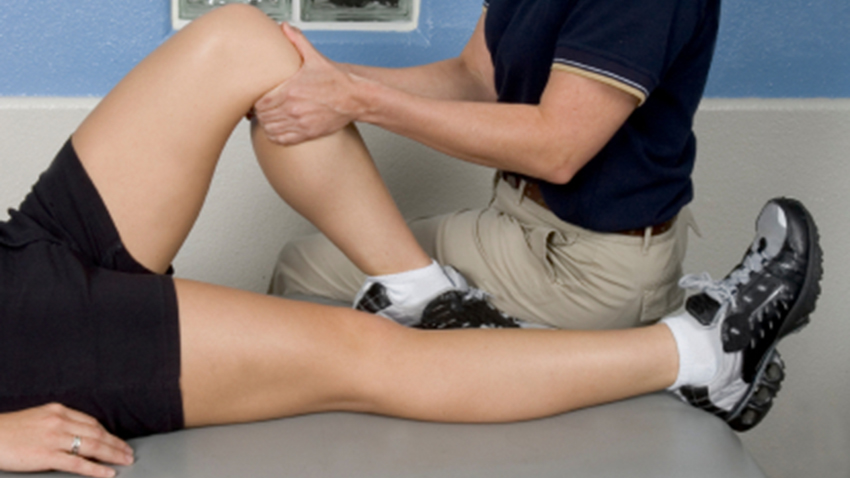Upper Body
Lower Body
General
Sports Related
MCL (Medial Collateral Ligament)
Knowledge is Power.
True/False - Quiz: Do You Understand MCL (Medial Collateral Ligament) Knee Surgery?
Information - MCL (Medial Collateral Ligament) Knee Surgery

POST SURGERY - FREQUENTLY ASKED QUESTIONS
If you have recently undergone knee surgery please review the below information to help you navigate through your post operative care.
1.) How long will I need to be on crutches after surgery?
Answer: Depending on the surgery performed you may not need crutches at all. If you do need crutches, they will be required for a period of time up to the point that you are walking with a reasonably normal gait without a significant limp or swelling to the knee. This is usually approximately 2-4 weeks.
2.) How soon can I try and walk after surgery?
Answer: You are encouraged to walk immediately with the use of crutches but only for very short distances, for example, around your home.
3.) When do I start bending my knee after surgery?
Answer: You are encouraged to bend you knee as soon as possible. Move the knee through any pain free range of motion.
4.) How much should I be able to bend it after surgery?
Answer: There is no limit to movement other than pain. You should only move it to a pain free position.
5.) Why do I have calf pain?
Answer: This is very common but if it is very painful and swollen it could be something more significant and you may be required to seek medical attention.
6.) If I have blisters on the wound, what should I do?
Answer: Blisters can occur due to the steri strips. They will resolve on their own but if they burst just keep the wound dry and it will resolve.
7.) When can I start to workout again?
Answer: You can start to workout once all the wounds have healed. This usually occurs after about 1 week.
General MCL information
An MCL sprain is an injury to the medial collateral ligament of the knee. The medial collateral ligament is a structure that runs along the medial side of the knee. It's usually injured from a blow to the lateral side of the knee that causes the stretch to the medial collateral ligament.
Symptoms & Treatment of MCL Injuries
Medial collateral ligament sprains range in degrees of severity from 1 to 3, with 3 being the worst (a complete tear of the ligament). The majority of MCL injuries are grade 1 and 2, and are generally treated non-surgically. These injuries are common in sports such as downhill skiing and hockey, as are ACL tears. It occurs when there is a valgus load to the knee, which is when the force is coming from the outside and the ligament on the inside gets stretched or twisted.
Symptoms of a medial collateral ligament sprain include pain along the medial side of your knee, swelling and stiffness. You should see your family doctor if these symptoms are more significant. The best initial treatment is with the RICE protocol (rest, ice, compression and elevation) and anti-inflammatories. On average, it takes six weeks for an MCL injury to heal.
Physiotherapy & Surgery for MCL Injuries
 Your family doctor may refer you to a physiotherapist for treatment. Leaving an injury of this nature for three to four weeks could lead to some irreparable damage, so getting to a qualified physiotherapist can really increase your chances of optimal rehab and recovery. If physiotherapy does not relieve your symptoms within the first six to eight weeks, then you may be referred to a surgeon.
Your family doctor may refer you to a physiotherapist for treatment. Leaving an injury of this nature for three to four weeks could lead to some irreparable damage, so getting to a qualified physiotherapist can really increase your chances of optimal rehab and recovery. If physiotherapy does not relieve your symptoms within the first six to eight weeks, then you may be referred to a surgeon.
MCL reconstruction surgery is rarely required, but if it is it’s typically done through a small incision on the inside of the knee. It cannot be done arthroscopically, as the medial collateral ligament is not inside the knee joint. If the MCL was torn in the middle, the orthopedic will sew the ends together. If it was torn where it attaches to the shinbone or thighbone, the orthopedic surgeon will reattach the MCL to the bone with a metal screw, stitches or a bone staple.
Talk to your healthcare provider if you'd like more information on MCL injuries and surgery.
Visit HealthChoicesFirst.com for more videos and resources on orthopedics.
Print this Action Plan and check off items that you want to discuss with your healthcare provider
-
Medial collateral ligament sprains range in degrees of severity from 1 to 3, with 3 being the worst (a complete tear of the ligament). The majority of MCL injuries are grade 1 and 2, and are generally treated non-surgically.
-
These injuries are common in sports such as downhill skiing and hockey, as are ACL tears. It occurs when there is a valgus load to the knee, which is when the force is coming from the outside and the ligament on the inside gets stretched or twisted.
-
Symptoms of a medial collateral ligament sprain include pain along the medial side of your knee, swelling and stiffness. You should see your family doctor if these symptoms are more significant.
-
The best initial treatment is with the RICE protocol (rest, ice, compression and elevation) and anti-inflammatories. On average, it takes six weeks for an MCL injury to heal.
-
MCL reconstruction surgery is rarely required, but if it is it’s typically done through a small incision on the inside of the knee. It cannot be done arthroscopically, as the medial collateral ligament is not inside the knee joint.
